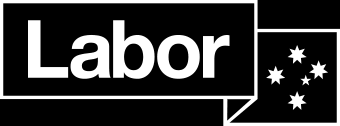I am very happy to speak on the motion moved by the member for Stirling, and I particularly commend the contribution by the member for Solomon in this debate, but also on the rugby field yesterday when we took on the ADF and got touched up by the members of the ADF. But this is an important motion, acknowledging the sacrifice of personnel who put their hands up for a career in the Australian Defence Force, and the sacrifice of their families. It is a very worthy topic for debate in this parliament, particularly today, when the royal commission into suicides is kicking off in Brisbane. I regularly visit the RSLs in my electorate of Moreton and do so proudly. Of course, on Anzac Day and Remembrance Day those organisations play a special role, but they are actually very important every day of the year. 'Shoulder to shoulder always' is the motto of the Queensland RSL, and I know the Yeronga, Sunnybank, Salisbury, Sherwood and Stephens RSLs all live up to that motto each and every day.
This motion is particularly about the benefits and sacrifices of a career in the ADF. I spoke to some local returned soldiers to hear their stories. When Hugh Poulson was at school he was attracted to the school cadets. He joined the regular Army as an enlistee in 1968, went to officer cadet school in Portsea, Victoria, graduated 12 months later as a second lieutenant in the Royal Australian Artillery and was in the ADF for 25 years. When he left, he held the rank of major. Hugh commanded a group of 500 men and had postings in Australia and overseas. He left the Army because he felt he was no longer leading his men in terms of physical fitness and because his children needed some stability. Hugh left the ADF in 1993. Unemployment was still high and he had to battle the preconceived views that civilians held about the Defence Force.
But Army is much more than 'foot soldiers'. It is a self-sufficient organisation with all the skills and traits to exist as a solo enterprise. Hugh had, and still has, excellent people management skills, project management skills and communication skills, which he gained and developed in the Army. Hugh understood that he had to sell himself and civilianise his Army skills and capabilities into a language that employers could relate to. It took him a number of interviews before he was finally employed. He actually found work in the Queensland public sector. At one point Hugh worked directly to the then Premier Peter Beattie on a telecommunications project, where his management and communication skills and flexibility were crucial to the success of the statewide project. He also learnt law and represented many ex-servicemen before the AAT—such an important part of RSLs. He was an advocate who not only understood the law but understood the military context of the law. Hugh has been an influential force at the Sunnybank RSL subbranch, which has embraced the wider community and multiculturalism.
Another local RSL member is Andrew Clifford. Andrew was in the Army Reserve for 13 years. He'd been employed at the department of transport but gave up his day job to go to Timor as part of Australia's reconstruction project. He described this as 'the hearts and minds project'. Andrew went to Timor as a reservist but was in charge of men who were in the regular Army, as there weren't enough corporals in the regular. In the reserves he was a technical engineer, but in Timor he was a combat engineer. He worked on mine warfare, water purification and bridge building. When Andrew returned it took three months to try and process his experience. While he was away life had moved on. Andrew was very unsettled for a time and moved from place to place to try and find himself. What he took from the Army were more than the skills of a combat engineer. Andrew had planning and organisational skills and could follow instructions. He transferred the skills he developed during his time with the ADF into building a business that removes legionnaire's disease from sites. He's also part of the executive of the Stephens RSL subbranch in Annerley and has made a significant contribution to the support and social activities of the branch.
These are just two stories. We know that our Defence Force personnel have developed valuable skills that can be transferred to civilian businesses. They understand the meaning of service and sacrifice and see them as substantial commitments. Returned veterans have put themselves on the line to protect our freedoms, and we owe them an enormous debt. It is not always easy to return to civilian life, and the RSLs, along with other organisations, do an amazing job in easing the transition process. I particularly thank Hugh and Andrew for their service and for letting me tell their stories here at Parliament House. I thank all of our returned service personnel.
The horrific numbers that are coming out of the royal commission will reinvigorate trauma for many people. The idea that there could be one person a week who takes their life because they haven't transitioned back into society after honourably serving our nation disturbs all parliamentarians.
I hope that Hugh and Andrew know that we are proud of their service. I'm certainly proud of them and I wish them well.


